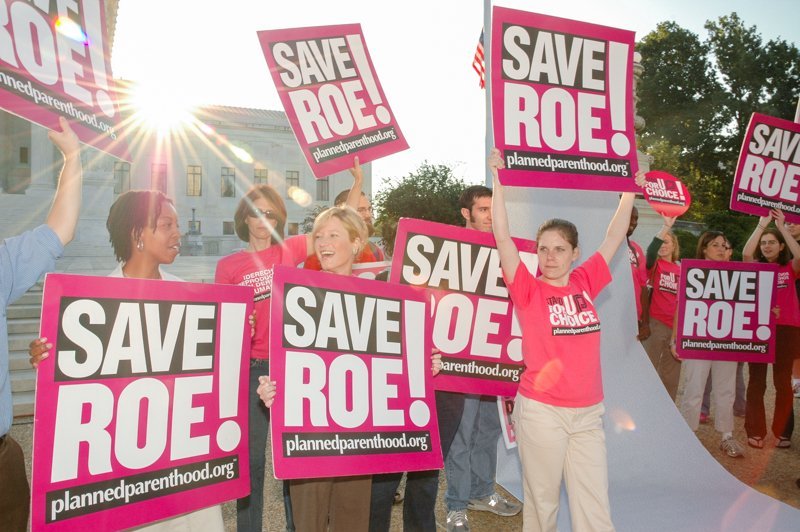Potential Roe v. Wade overturning draws disapproval from students

Following the May 2 release of a leaked document that revealed the Supreme Court’s plan to overturn Roe v. Wade, some students fear the repercussions it will have on autonomy and the detriment it could pose on marginalized communities.
About 25% of all pregnancies worldwide end in abortion, according to Amnesty. The procedure is sought out by people with uteruses who wouldn’t like to have a child or the pregnancy threatens the health of the carrier.
“Women have a right to their own body and we should be able to have the choice to engage in a life-altering decision on our own without any third-party influences,” freshman communications major Sophia Degroat said.
In the 1973 Supreme Court case, the Justices ruled in a 7-2 decision that the U.S. Constitution protects a person’s right to abortion without excessive government restrictions and prohibits states from banning the procedure before fetal viability.
The leaked document, which was first published by Politico, unveiled plans to reverse that interpretation. Within the document, Associate Justice of the Supreme Court Samuel Alito explicitly stated the decision that legalized abortion was unconstitutional.
Despite confirming the validity of the document on May 3, the Supreme Court announced that the text doesn’t represent the Court’s final decision, according to The New York Times.
Sophomore psychology major Emily Carlson said restrictive abortion bans would also result in health concerns for those in need of an abortion.
“Deaths due to illegal abortions will rise drastically,” Carlson said. “Banning abortion does not eliminate them, it just bans safe abortions.”
Unsafe abortions account for up to 13% of deaths related to pregnancy and childbirth, according to a 2021 report published by the Population Reference Bureau.
Abortions may be necessary for health conditions such as preexisting heart and kidney issues, according to the American College of Obstetricians and Gynecologists. If exacerbated by pregnancy, these health complications may result in the death of the carrier.
Difficulties with pregnancy and delivery lead to an estimated 700 deaths annually in the U.S., according to the Centers for Disease Control and Prevention.
Planned Parenthood Generation Action President Tamya Ticconi expressed concerns about the role socioeconomic status would play for those wanting or needing the operation.
“It’s always been that wealthy people can frankly do whatever they want to do. If someone has the means to travel to a different state to pay for an abortion, they very much could do so,” Ticconi said.
“When we look at these Black and brown communities, and we’re looking at those below the poverty line, we’re going to see a very hard hit on people who do not have the accessibility to do so.”
In the event that Roe v. Wade is ruled unconstitutional, states will be given the ability to determine their own regulations surrounding abortions, according to associate professor at the College of Public Health Katherine Drabiak. The specifics will then vary depending on the individual beliefs of state lawmakers.
“If Roe v. Wade is overturned, that means that the Supreme Court is not recognizing [abortion] anymore as a constitutional right,” Drabiak said.
“It’s volleying it back to the states, so what will happen is there will be many states that still permit late-term abortions … there will be some states that have the same laws that they have now. Then there will be other states that have more restrictive gestational limits.”
Trigger laws have already been passed by 13 states — such as Louisiana, Texas and Mississippi — which will automatically ban abortion if Roe v. Wade is overturned. There are 26 states in total, including Florida, expected to eventually pass abortion bans, according to Ticconi.
Many of the bans in these states would make receiving an abortion a felony. Abortion recipients could face fines and prison time, as well as losing the ability to vote.
In Florida’s case, Gov. Ron DeSantis signed a bill April 14 outlawing abortion after 15 weeks of pregnancy, but has remained silent on the current developments surrounding Roe v. Wade.
Ticconi said she expects Florida to expand upon its current restrictive legislation if Roe v. Wade is overturned.
A final ruling regarding the future of Roe v. Wade is expected to be issued by the Supreme Court between late June and early July.







